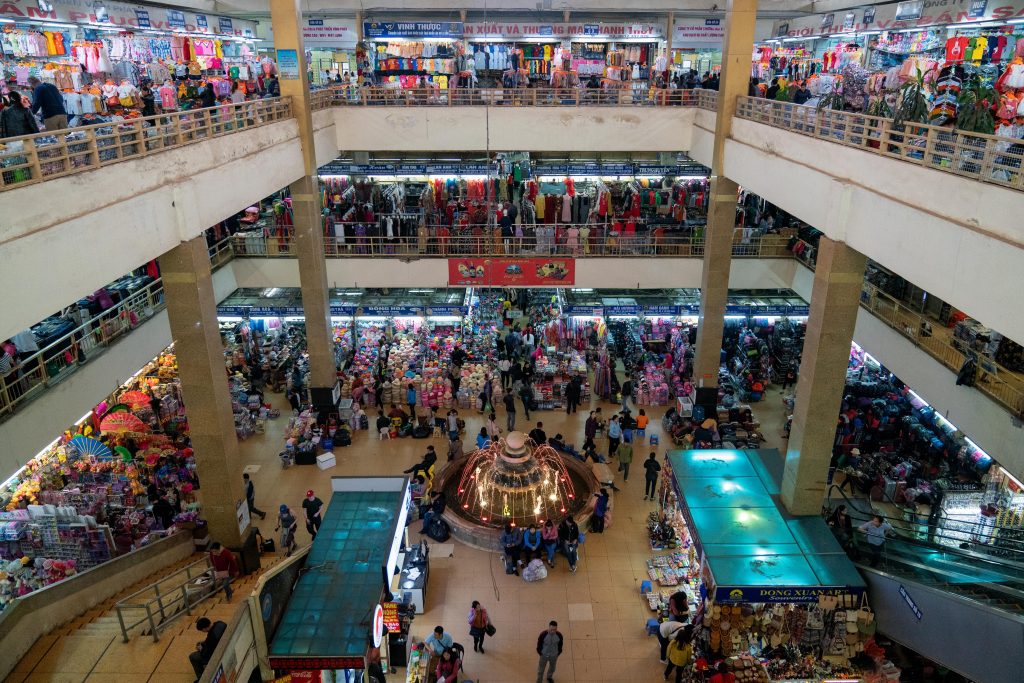The rapid spread of COVID-19 has shaken up economies all over the world. We’re in the midst of what economists say is an unprecedented global collapse in production, sales, and business confidence. One of the largest sectors affected by this are the small business owners and entrepreneurs that comprise 90% of the total business population. Without swift government action, even the healthiest of small firms are at risk of bankruptcy. Designs.ai has put together a list of the primary impacts of the COVID-19 global pandemic on small businesses.
1.) Reduced consumer spending

Without job security, consumers are seeking to cut costs as much as possible — especially for non-essential products and services. (Unsplash.com)
One of the largest impacts of the COVID-19 pandemic is the increasing rate of unemployment around the world. Industry giants like Marriott have laid off thousands of their workforce in recent weeks, and many retail establishments have mandated their employees to take no-pay leaves until further notice. Without job security, consumers are seeking to cut costs as much as possible — especially for non-essential products and services.
According to Business Insider, over 3.3 million Americans have applied for unemployment benefits as of March 21. Others have begun seeking short-term loans to safeguard themselves for the year ahead.
Trends in China reflect what the global small business community will likely experience in the following months. Over 85% expect to run out of cash in the next 3 months, and, while all predict a net loss in revenue, 30% project as much as a 50% decrease.
The airline and hospitality industry are among those hit the hardest by the pandemic. Despite government bailouts, the CAPA Center for Aviation reports that most airline companies will likely declare bankruptcy by May 2020. This hurts small to medium enterprises (SMEs) that rely on tourism revenue to stay afloat.
2.) Decreased popularity of brick-and-mortar stores

But with the increasing number of countries declaring community quarantine, brick-and-mortar SMEs are seeing sharp declines in sales. (Unsplash.com)
Prior to the pandemic, SMEs thrived on their brick-and-mortar stores for revenue. Consumers spent over 60% of their discretionary monthly income in-store, and e-commerce comprised only 9.46% of total retail sales.
But with the increasing number of countries declaring community quarantine, brick-and-mortar SMEs are seeing sharp declines in sales. According to Stacey Wilditz, president of retail consulting firm SW Retail Advisors, “Right off the bat you are talking about a 70%, 80% — definitely over 50% hit to sales for companies that sell discretionary items such as clothing, footwear, handbags and jewelry.” With strong social distancing campaigns in place, many retail establishments are also cancelling Spring sale campaigns including Easter, Mother’s Day, and Graduation.
Of total brick-and-mortar establishments, SMEs are expected to take the hardest blow. As much as 98.6% of all physical retail establishments are small to medium enterprises. Yet, despite predictions of a looming recession, 44% of small businesses have not taken any measures of preparation.
3.) Lack of in-person business opportunities

According to PredictHQ, the cancellation of these major tech events have incurred over $1 billion in direct economic losses. (Unsplash.com)
Earlier this year, several major industry conferences such as the Mobile World Congress and Facebook’s F8 Developer Conference were cancelled in light of the worsening pandemic. Others, like Google Cloud Next and IBM’s Digital Developer Conference, moved exclusively online. According to PredictHQ, the cancellation of these major tech events have incurred over $1 billion in direct economic losses.
Small businesses often anticipate these affairs for the opportunities to network, pick up industry knowledge, and forge partnerships. As much as 53% of U.S. B2B marketers consider in-person events and trade shows an effective channel for driving conversion.
While online conferences have the benefit of greater reach, they miss out on the more informal yet equally vital aspect of having them in-person: casual conversation. A lot of partnerships are formed over quick chats in between sessions, and many learn key industry trends or best practices, as well. Without them, business owners struggle to find opportunities to directly meet with key industry players.
These cancellations don’t just affect industry conferences. They also prevent dinners and informal gatherings which SME owners similarly capitalize on for the same benefits.
4.) Risk-averse investors

With all the economic uncertainty triggered by the pandemic, investors are flocking towards safety rather than more risky decisions like investing in start-ups. (Unsplash.com)
With all the economic uncertainty triggered by the pandemic, investors are flocking towards safety rather than more risky decisions like investing in start-ups. SMEs will either have to significantly delay initial public offerings (IPOs) or rethink their business models to cope with this risk-averse investor environment.
The organization for Economic Cooperation and Development declared that the global growth rate will likely be cut by 1.5% in 2020 — over half of what global economies would have achieved otherwise. Goldmann Sachs also projects that global sales will likely drop by 24% in the second quarter of the year. All of these, economists fear, may lead to a global recession worse than the 1997 Financial Crisis.
Even with all these predictions, uncertainty still looms in the air. Many of these projections rely on assumptions about government response time, speed and capacity for vaccine manufacturing, and the compliance of the public to health and safety measures. Worse, important figures such as the actual infection and mortality rates of the disease are still up undetermined given the likely number of unreported cases.
5.) Major supply chain disruptions

With all firms around the world affected, companies will likely struggle with supply chain delays and disruptions in the months to come. (Unsplash.com)
With all firms around the world affected, companies will likely struggle with supply chain delays and disruptions in the months to come. Even those in countries barely hit by the pandemic will likely experience the same given today’s level of economy interconnectedness.
SMEs and small retailers in the West that rely on Chinese manufacturing hubs have already begun to experience these problems. Only 25% of China’s total workforce has returned to work in tier one cities. Across the country, many of their factories and plants are still on either partial or full shutdowns. One factory owner in China stated that he expects production delays to cost his company a 30-40% decrease in annual revenue.
In many parts of the world, governments have also mandated citizens to stay at home, and have shut down factories for non-essential goods and services.
While large firms may have the benefit of surplus inventory to sell across the next few months, SMEs don’t have the same safety net. Many will likely restart sales much later this year or will have to pay higher costs to produce their products.
Conclusion
SMEs are the most important players in the global economy. They are the largest employers, they contribute more than half of GDP in developing countries, and they provide unique, innovative solutions to billions of people across the world. Understanding the impacts of the pandemic is the first step to formulating robust solutions to help them. Some countries like China, Japan, and Vietnam have already begun implementing state-wide programmes to help their local SMEs
SMEs themselves can also get through these challenging times by cutting costs on non-essentials and investing in the right products. Designs.ai offers a suite of smart automation tools that can help small businesses produce marketing content at a fraction of the time, cost, and manpower. Logomaker can help SMEs craft a compelling brand identity and logo with the help of AI. While Videomaker is a smart text-to-video tool that automatically transforms your script into a professional marketing video at 93% less than typical production costs. Designs.ai also offers an array of free assistive tools that can guide you in your design process. These include Graphicmaker, Color Matcher, and Font Pairer.
But aside from governments and the private sector, each one of us also has the responsibility to do what we can for our local SMEs. Simple things like tipping more than usual, leaving good reviews, giving shoutouts on social media, and maintaining patronage are all things that contribute more than we know.
Read More
- How to Scale-up with Video Content Internationally
- A Handy Guide to Color Theory
- A Crash Course in Typography
- Minimalism in Design and Why it Works
